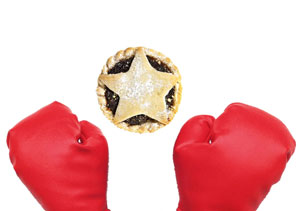Outsourcing compliance makes it easier for businesses to manage the burden of exploding regulations.
It also makes it easier for them to not follow them properly.
 Being something of a flighty freelancer, PPW finds himself “onboarding” with new clients, or back with previous clients, on a fairly regular basis. Being something of a work/life balance motivated (i.e. lazy) freelancer, PPW also often finds himself having to account for the gaps in his work history when he does.
Being something of a flighty freelancer, PPW finds himself “onboarding” with new clients, or back with previous clients, on a fairly regular basis. Being something of a work/life balance motivated (i.e. lazy) freelancer, PPW also often finds himself having to account for the gaps in his work history when he does.
When you combine our ever-increasing nanny state cosseted world with the populist disdain for big business, especially big financials, it should come as no surprise that over the last few years the background checks for new and returning bodies have grown ever more onerous.
The out-of-control expansion of bureaucracy and personal intrusion has little power to shock these days. The half-assed way it’s done though can occasionally raise an eyebrow or two.
Driving a bus through the business
Apparently, the point of scrutinising career gaps is to ensure you weren’t hired-and-fired by someone else, dealing with materially relevant ill health or perhaps detained at Her Majesty’s pleasure over that time, and are trying to hide it from your future mortgage-payer.
This is, of course, symptomatic of the growth in the “presumption of guilt until proven innocent” mentality, which either because we don’t care enough or we are too wearied by it, we no longer seem to fight back against. Fair enough, it is what it is, but it does throw up a few challenges for the accused. I can prove a positive, but how do I prove a negative? How do I establish I was just sitting on my ass or playing with my boat for a few months while the money from my last gig was running down?
My screeners are an outsourced bunch used by a growing number of large UK financials. And, since they specialise in managing this sort of complexity for multiple clients, they’ve come across this situation many times before (several times just with me). So they are at least prepared with a couple of “if all else fails” solutions to my plight.
My choices are either to send them copies of my bank statements covering the period in question (establishing that I didn’t have any income or curious expenditure), or to visit a solicitor and swear an oath accounting for what I was doing over that time.
I’d offer you a minute to think about those two options for catching the criminal mastermind in the act, but I doubt you need one!
Taking the first, aside from being a piss-taking intrusion into my private life, like many people I have multiple bank accounts (less I suspect than most criminals do though) so I could just give them statements from a clean one.
As to the second, well if I were the dodgy type I’d hardly turn a hair at lying on oath.
Which makes me wonder about the idiots who orchestrate this sort of thing in the first place. I rather think they wouldn’t care either. In fact, I rather think they’re not all that dumb after all.
The driver of the bus
Both in their volume and in their velocity of change, regulations are an exploding burden on big business and so is the burden of complying with them. Outsourcing compliance to a specialist third-party leverages shared expertise, spreads the cost and lightens the load of keeping on top of it going forwards.
It makes perfect business sense.
But the benefits don’t stop there. In our 24/7 news culture with its frenzied passion for beating down popular whipping boys, big businesses and especially big financials fear the reputational damage of getting it wrong like never before. If you’ve outsourced the responsibility in good faith not only have you bought yourself a cheaper deal but you’ve bought yourself a pass if it all goes wrong as well.
A crumb of comfort perhaps for our beleaguered big businesses, though perhaps not so much for the man in the street who may one day become its victim.
 Ah, Christmas, joyous season of toasty comforts, belt-straining excess and uninspiring journalism. Among the many ghosts of Christmas past helping hungover hacks pad the pages at this time of year are the polls surveying what people hate the most about it. According to
Ah, Christmas, joyous season of toasty comforts, belt-straining excess and uninspiring journalism. Among the many ghosts of Christmas past helping hungover hacks pad the pages at this time of year are the polls surveying what people hate the most about it. According to 